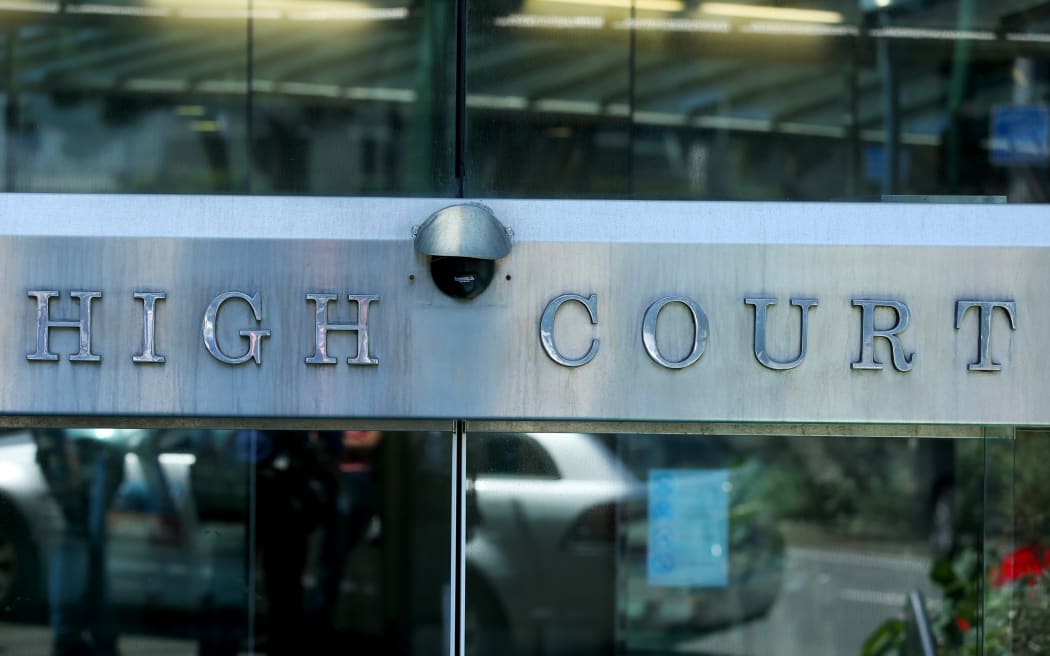A woman accused of multiple stabbings resulting in one death in Wellington last year has been found not guilty by reason of insanity.

Wellington High Court Photo: RNZ / Alexander Robertson
In the High Court in Wellington this morning, Justice Collins accepted the woman's not-guilty plea and ordered she be made a special patient and held in a mental health facility.
A 67-year-old man was killed and four others injured in the knife attacks in the suburb of Johnsonville in July last year.
The 26-year-old woman faced five charges: murder, assault with a weapon and three charges of wounding with intent to cause grievous bodily harm.
The court was told that on the day of the attacks the woman saw her GP, who referred her to the crisis team at Wellington Hospital.
Psychiatrist Dr Justin Barry Walsh told the court the woman had assaulted her GP, believing that he was trying to poison her, and was deeply suspicious of the motivation of the crisis team.
The team did its best to persuade her to take the medication she had been taking, which she had stopped taking three months earlier, he said.
But blood tests taken after the attack found no traces of the medication in her system.
Dr Barry Walsh, who saw the woman within 48 hours of the attacks, told the court she was "distressed" and "disorganised" and held conflicting beliefs.
University of Otago associate professor of forensic psychiatry Philip Brinded told the court the woman first became unwell in Australia in 2008, and since then had been committed on a number of occasions.
Frightened of her medication and fearful of the side effects, she had a history of non-compliance, he said.
"Whenever she stopped her medication, her history shows that over a period of months she becomes extremely unwell," he said.
Associate Professor Brinded told the court the woman was suffering from major mental illness at the time of the attacks, probably schizoaffective disorder.
The woman said what she had done was something that had to happen and it was good that it had happened but now she was remorseful, he said.
"She was in such a psychotic state that she did not know that what she was doing was wrong," he said.
Both psychiatrists supported making the woman a special patient.
Justice Collins ordered the woman be made a special patient and held in a mental health facility, "until such time as determined that the restriction is no longer required".
A hearing to determine whether the woman's name should be permanently suppressed will be held next week.

